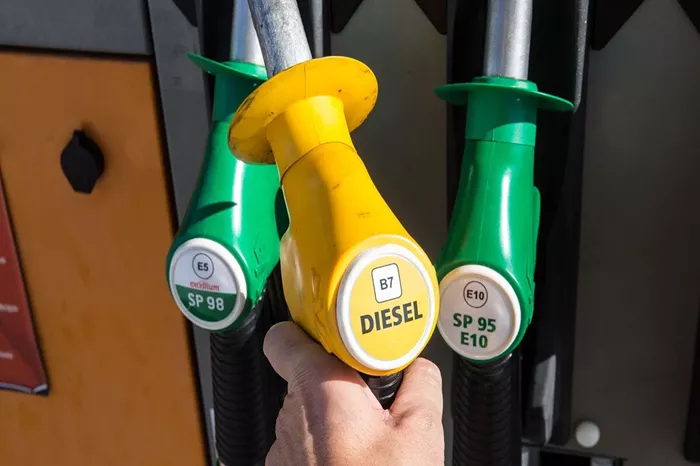Many diesel vehicle owners wonder whether premium diesel is worth the extra cost. Gas stations often sell two types of diesel: regular and premium. Premium diesel usually costs more, but it also promises benefits like better engine performance, improved fuel efficiency, and lower emissions. However, these claims make many drivers question whether premium diesel is truly necessary or just a marketing strategy.
This article explains what premium diesel is, how it differs from regular diesel, and whether it is worth using. By the end, you will have a clear understanding of whether premium diesel is the right choice for your vehicle.
What Is Premium Diesel?
Premium diesel is an enhanced version of regular diesel fuel. It contains special additives that improve engine performance and fuel efficiency. These additives may include detergents, lubricants, and cetane boosters. Each brand of premium diesel may have a slightly different formula, but the goal is the same: to improve fuel quality and engine operation.
Key Features of Premium Diesel
- Higher Cetane Rating – Cetane is similar to octane in gasoline. It measures how quickly and efficiently diesel fuel ignites. A higher cetane number means smoother engine operation and better combustion.
- Detergents – Premium diesel often contains more detergents that clean the fuel system and prevent deposits from forming.
- Lubricity Enhancers – These additives help reduce wear and tear on fuel injectors and other engine components.
- Corrosion Inhibitors – Some premium diesel fuels contain chemicals that protect the fuel system from rust and corrosion.
- Improved Cold-Weather Performance – Premium diesel is sometimes designed to perform better in cold temperatures by preventing fuel from gelling.
Differences Between Regular Diesel and Premium Diesel
The main differences between regular and premium diesel are the additives and cetane rating. Regular diesel meets the minimum requirements for diesel engines, while premium diesel goes beyond the basic standard.
- Cetane Number – Regular diesel typically has a cetane number between 40 and 45, while premium diesel may have a cetane number above 50.
- Fuel System Cleaning – Regular diesel may lead to carbon buildup over time, while premium diesel helps clean the system.
- Engine Longevity – Because premium diesel reduces deposits and friction, it may extend engine life.
- Cost – Premium diesel costs more per gallon than regular diesel.
Benefits of Using Premium Diesel
Using premium diesel can provide several benefits, but the actual impact depends on the type of vehicle, driving habits, and fuel quality.
1. Better Engine Performance
Premium diesel can help engines run more smoothly. With a higher cetane number, the fuel burns more efficiently, leading to quieter and cleaner operation.
2. Improved Fuel Economy
Some drivers report better fuel efficiency when using premium diesel. Cleaner fuel injectors and better combustion may result in more miles per gallon.
3. Reduced Maintenance Costs
Premium diesel keeps the fuel system cleaner, which can reduce the need for costly repairs. Fewer deposits mean less wear on fuel injectors and other components.
4. Lower Emissions
Cleaner combustion leads to lower emissions. This is beneficial for the environment and may help vehicles meet emissions standards.
5. Better Cold-Weather Performance
Some premium diesel fuels contain additives that prevent fuel from thickening in cold weather. This can improve winter performance, especially in regions with freezing temperatures.
When Is Premium Diesel Worth It?
Premium diesel may not be necessary for all vehicles. Some engines benefit more from premium diesel than others.
1. Heavy-Duty Vehicles
Trucks and other heavy-duty diesel engines often benefit from premium diesel. These vehicles experience more wear and tear, and premium diesel helps keep the engine clean.
2. Older Diesel Engines
Older diesel engines may suffer from carbon buildup. Using premium diesel can help clean the fuel system and improve performance.
3. Vehicles Used in Extreme Conditions
If you drive in very hot or cold weather, premium diesel may help your engine run better. Cold-weather additives prevent fuel gelling, while lubricity enhancers reduce wear in high temperatures.
4. Vehicles with High-Performance Diesel Engines
Some high-performance diesel engines are designed to work best with premium diesel. Check the owner’s manual to see if premium diesel is recommended.
When Premium Diesel May Not Be Necessary
1. Standard Diesel Vehicles
If your vehicle runs well on regular diesel, switching to premium may not make a big difference.
2. Short-Distance Drivers
If you only drive short distances, the benefits of premium diesel may not be noticeable. Engine deposits build up more in long-distance driving.
3. High Fuel Costs
Premium diesel costs more than regular diesel. If the benefits do not outweigh the extra cost, sticking with regular diesel may be the best option.
Conclusion
Premium diesel has several benefits, including better engine performance, improved fuel economy, and lower emissions. However, it also costs more than regular diesel. Whether it is worth it depends on the type of vehicle, driving conditions, and fuel quality.
For heavy-duty trucks, older engines, and vehicles operating in extreme conditions, premium diesel may be a good choice. However, for standard diesel vehicles and short-distance drivers, regular diesel is usually sufficient.
Before making the switch, check your vehicle’s manual and compare fuel costs. If your engine runs well on regular diesel, there may be no need to pay extra for premium diesel. However, if you want a cleaner, smoother-running engine and are willing to pay a little more, premium diesel may be worth it.

